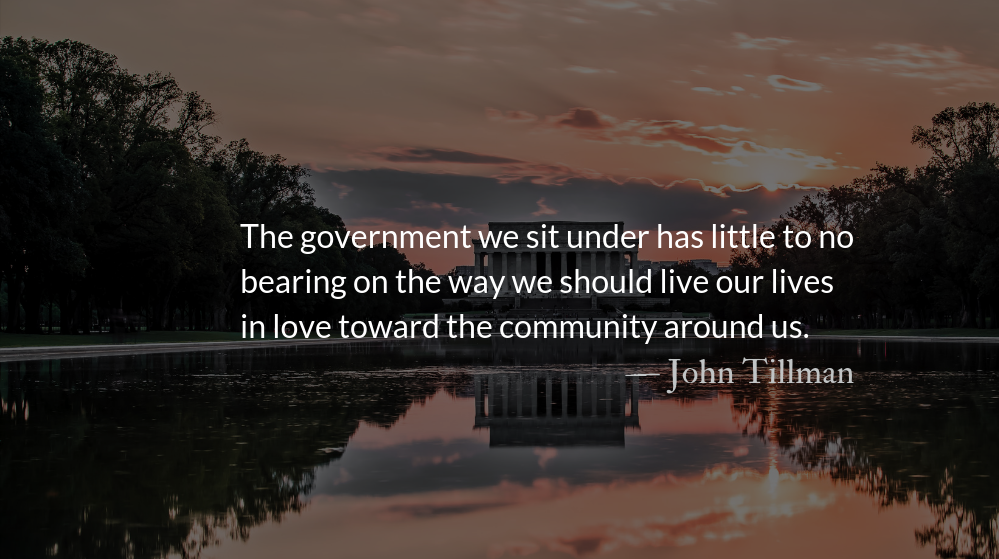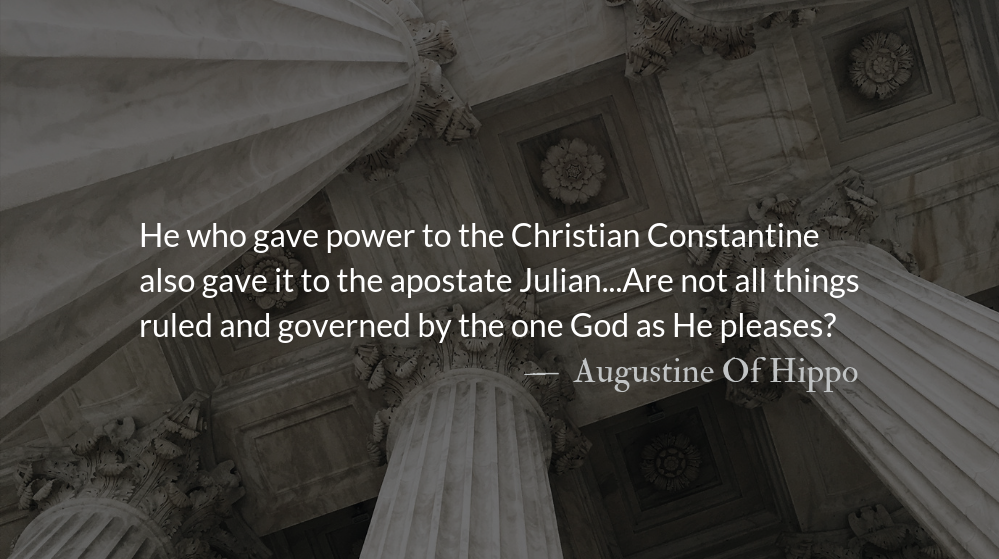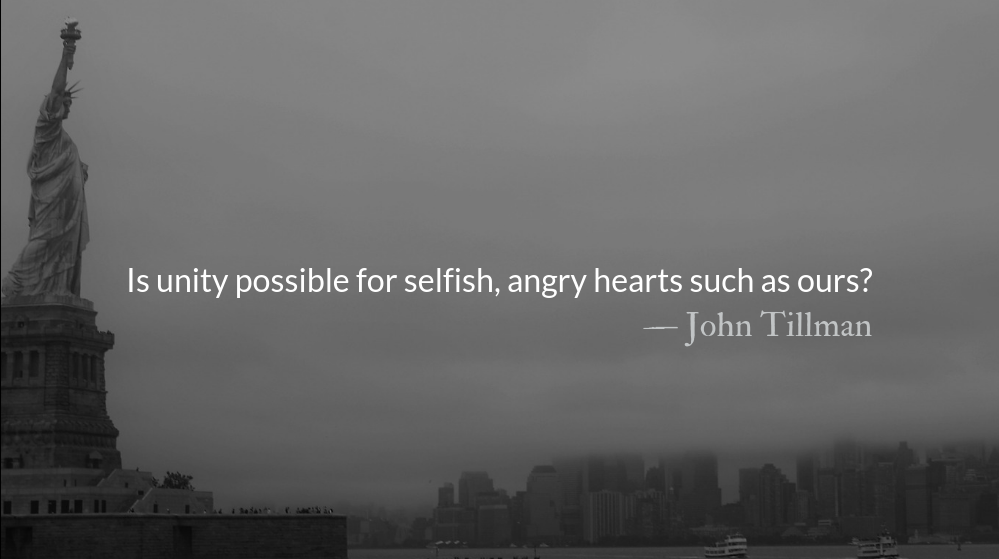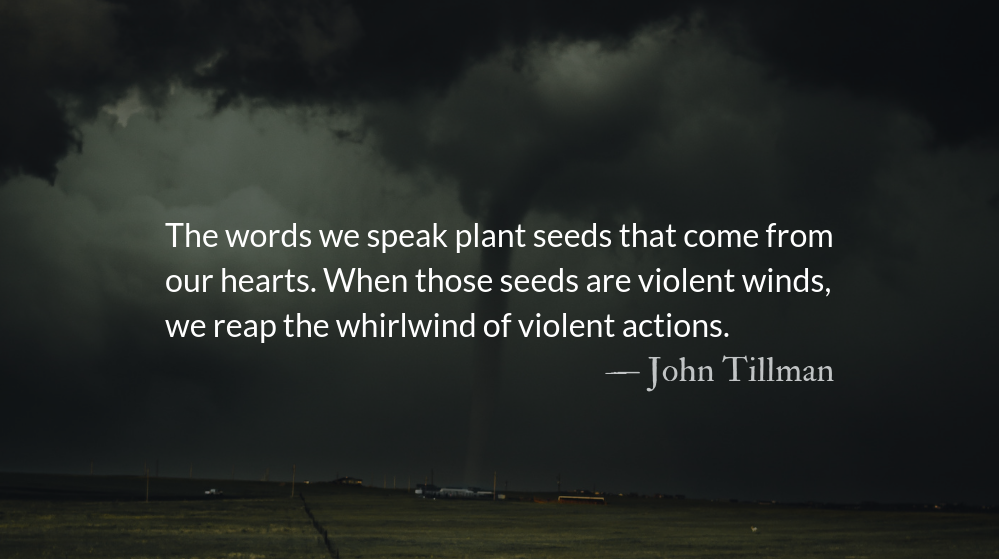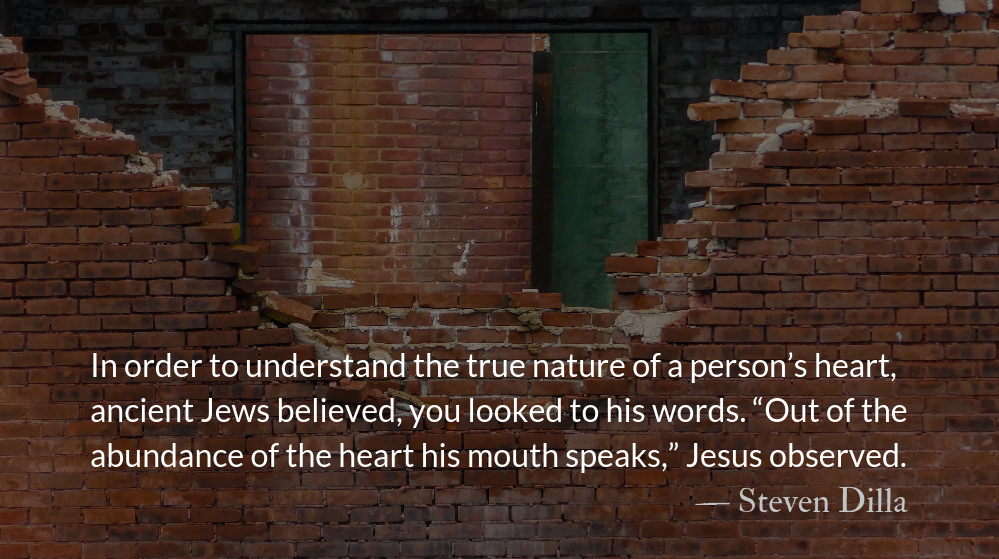Hosea 13.10-11
Where is your king, that he may save you?
Where are your rulers in all your towns,
of whom you said,
‘Give me a king and princes’?
So in my anger I gave you a king,
and in my wrath I took him away.
Psalm 138.7
Though I walk in the midst of trouble,
you preserve my life.
You stretch out your hand against the anger of my foes;
with your right hand you save me.
Reflection: Who is Your King?
By John Tillman
As I write this is it November 2nd. On the day this will post, November 7th, many varied outcomes are predicted. Depending on the news source and depending on how they slice and dice the data (and how questionable the data is in the first place) we may wake up Wednesday to a blue wave, or maybe a red wave. Whatever the outcome, the media will step vigorously into its role of dividing us into losers and winners—the empowered and the powerless.
Whatever kings and princes we wake up to today, one thing Christians can be assured of—they will not save us. The more we grasp at their power, hoping for protection and salvation, the further we lurch away from Christ’s example.
Jesus came demonstrating the power of powerlessness and a theology of weakness. He told the disciples to bring swords solely for the purpose of telling them to put them away, never to be drawn again. He was able to access power to defeat his foes, but chose powerlessness instead.
But, “Does powerlessness mean that we are doomed to be doormats for our power-hungry society?”, asks Henri Nouwen in his essay, Power, Powerlessness, and Power. “As fearful, anxious, insecure, and wounded people we are tempted constantly to grab the little bit of power the world offers us. These threads of power make us puppets jerked up and down until we are dead.”
Christians in any political tribe who lean on the staff of political power, will see it crumble and splinter, damaging our hands and staining our reputations. It is not the power we need.
Nouwen goes on to explain that forsaking the power of the world opens us to be filled with the power of love—not human love, but God’s love.
A theology of weakness claims power—God’s power, the all-transforming power of love…It is this power that engenders leaders for our communities, women and men who dare to take risks and new initiatives. It is this power that enables us to be not only gentle as doves but also as clever as serpents in our dealings with governments and church agencies. It is this divine power that enables us to become saints who can make all things new.
When God sets out to destroy, he often uses kings and governments. He used Nebuchadnezzar. He used Pharaoh. He used Darius. He used Constantine.
When God sets out to make things new, he eschews governments. He starts a family. He lifts up the outcast. He frees the slave. He gathers a community.
The privilege of God’s people is not to be used, but to be loved, to love each other, and serve others with, and lead others to, that love.
The government we sit under has little to no bearing on the way we should live our lives in love toward the community around us.
Allowing any party of government to claim us as “theirs” dissociates us from the gospel and from Christ. Who is our king? May we answer with confidence, “We have no king but Christ, and him crucified.”
Prayer: The Morning Psalm
I will sing of mercy and justice; to you, O Lord, will I sing praises. I will strive to follow a blameless course; oh, when will you come to me: I will walk with sincerity of heart within my house. I will set not worthless thing before my eyes; I hate the doers of evil deeds; they shall not remain with me. A crooked heart shall be far from me; I will not know emil. Those who in secret slander their neighbors I will destroy; those who have a haughty look and a proud heart I cannot abide.— Psalm 101.1-5
– Prayer from The Divine Hours: Prayers for Autumn and Wintertime by Phyllis Tickle.
Prayers from The Divine Hours available online and in print.
Today’s Readings
Hosea 13 (Listen – 2:26)
Psalm 137-138 (Listen – 2:13)
Additional Reading
Read More about God’s Kingdom Versus God’s Reign
Christ repeatedly asserted that God’s kingdom was paradoxically “in your midst” and “not of this world.” Yet that somehow doesn’t keep us from attempting to redeem the earth through worldly means, baptizing political activism and equating it with spiritual warfare.
Read More about Celebrating Earthly Kingdoms :: Readers’ Choice
This should call all of us to our knees before Christ to pledge that no earthly authority will be allowed to usurp His primacy.
Support our Work
Each month over 22,000 Park Forum email devotionals are read around the world. Support our readers with a monthly or a one time donation.

